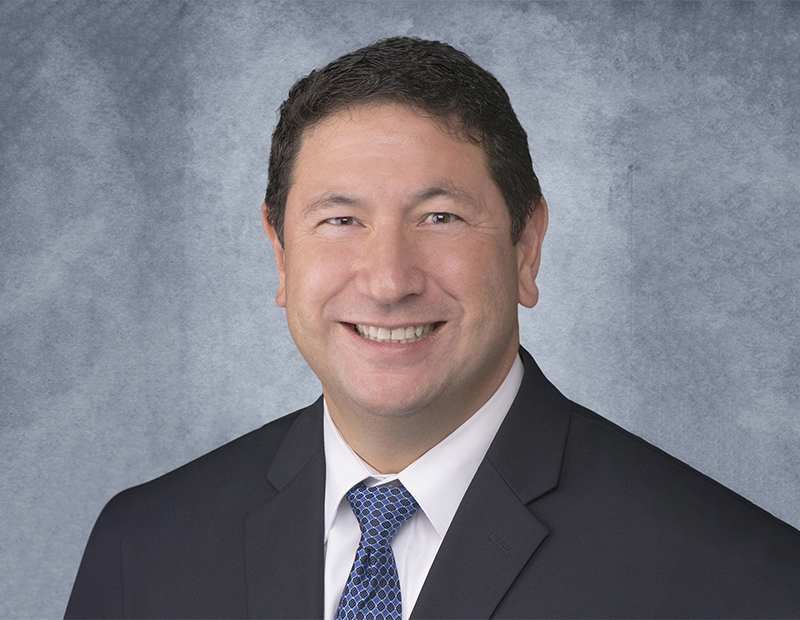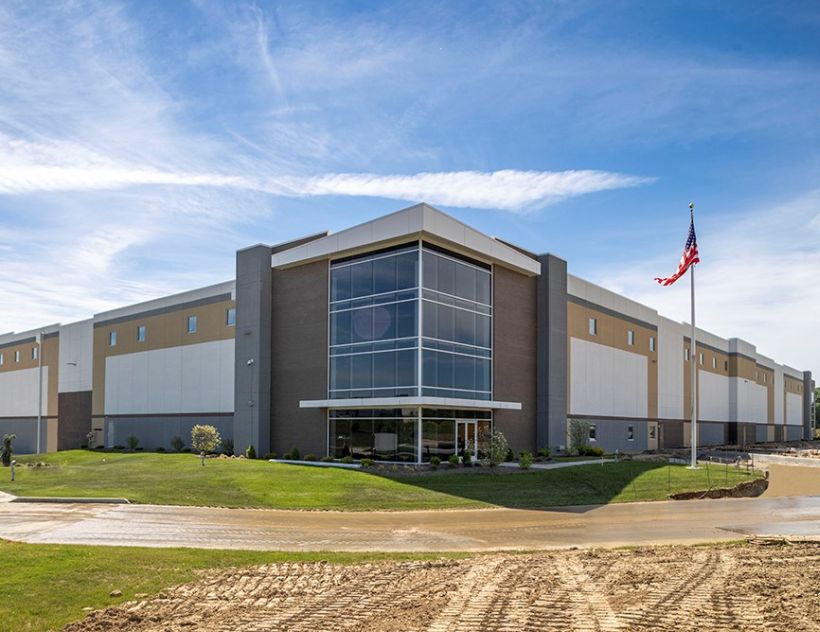Real Estate Market Crash Unlikely, Experts Say
Economists are calling the pandemic-induced recession unique in several ways. Here’s how analysts expect the health crisis to change the real estate market.
As the COVID-19 pandemic made its way into the U.S. early this spring, wreaking havoc on the health-care system and almost paralyzing the entire economy, most industry specialists began asking themselves if 2020 will bring a real estate market crash. Although predictions made in March and April were grim, strong voices foreseeing a market crash this year are now significantly fewer.
READ ALSO: The Effect of COVID-19 on Real Estate Lending
Meanwhile, as economists started to rule out a housing bubble, concerns regarding a severe financial crisis intensified due to the Federal Reserve’s massive infusion of capital into the private sector. The yield spread figure going negative for a few months in mid-2019 was one of the early indicators of the upcoming market volatility, while the Urban Land Institute’s economic report published in May predicted an unusually low treasury rate for the next two years, averaging 0.8 percent in 2020.
The COVID-19-induced slowdown: unlike any other
As of July, the U.S. unemployment rate stood at 10.2 percent, according to the U.S. Bureau of Labor Statistics. The rate is encouraging when compared to previous months, but is still above the highest rate during the Great Recession—10 percent in October 2009. At the same time, the stimulus package that Congress passed in March was more than double the financial aid offered during the last downturn. Several other parallels exist with the 2008 crisis, but most relate to the financial aspect rather than the real estate aspect, which was at the core of the Great Recession.
What exactly defines this economic crisis? The current economic slowdown “is distinguished by the abruptness and depth of the decline in activity as well as the drivers—a health crisis motivating a broad and self-imposed constraint on activity,” said Sam Chandan, associate dean at New York University’s School of Professional Studies Schack Institute of Real Estate. Meyers Research Chief Economist Ali Wolf also agrees that this economic slowdown cannot be compared to any other recession. “This recession will go on the record for being the sharpest and shortest in history, with the lingering effects lasting for years,” she said.
READ ALSO: Scouting Post-Pandemic Potential
Looking at the real estate sector, particularly at investment activity, Marcus & Millichap Senior Vice President John Chang noted: “In the second quarter, commercial real estate sales were down about 60 percent compared to last year. That is in alignment with the downturn created by the Global Financial Crisis which generated a transaction reduction of 58 percent from peak to trough.” The major difference, however, is that while the sales slowdown happened over a longer period during the 2008 crisis, real estate activity during the current crisis can be characterized as “a very fast-paced shock wave event.”
Another exceptional trait of this economic crisis is the market sectors that were impacted the most. As a result of the lockdown and social distancing requirements, hospitality and retail were hit the hardest, with the health-care sector also under pressure. Unlike the Great Recession when the housing sector took a nose dive, right now the single-family and multifamily segments are proving to be among the most resilient. The rent relief legislation has been helping renters and multifamily owners make regular payments since the beginning of the pandemic, although the numbers for August are showing a slight decrease in payments and many are concerned about what the upcoming months will look like if rental assistance becomes thinner. Despite little political consensus at the moment, there’s rising pressure for more capital infusion into the economy. Nevertheless, as Wolf pointed out, “it is normal to see the housing market slow in a recession.”
Unlike the Great Recession when the housing sector took a nose dive, right now the single-family and multifamily segments are proving to be among the most resilient. The rent relief legislation has been helping renters and multifamily owners make regular payments since the beginning of the pandemic, although the numbers for August are showing a slight decrease in payments and many are concerned about what the upcoming months will look like if rental assistance becomes thinner. Despite little political consensus at the moment, there’s rising pressure for more capital infusion into the economy. Nevertheless, as Wolf pointed out, “it is normal to see the housing market slow in a recession.”
When it comes to the commercial real estate sector, Chang added, “Thus far, there has not been a broad-based pricing correction in commercial real estate.” The situation was different during the Great Recession, when commercial real estate prices fell by 25 percent.
Is the housing market about to crash?

Sam Chandan, Associate Dean, NYU SPS Schack Institute of Real Estate. Image courtesy of NYU SPS Schack Institute of Real Estate
The major cause of the 2008 recession was the loose mortgage lending standards, which allowed borrowers with poor credit history to buy homes. This put pressure on household debt and resulted in a wave of foreclosures, which, in turn, pulled home prices downward. If inventory buildup was a major problem during the Great Recession, this recession is dealing with a lack of inventory and high home prices.
“House prices surpassed their peaks from the housing boom during the recently ended expansion. At the same time, sales volume remained relatively subdued. This combination reflects very limited additions to the supply of single-family homes rather than rampant activity,” said Chandan, who believed that the data does not point toward a real estate bubble.  While housing demand has been softening nationwide due to the pandemic and job losses, the market is in much better shape than a decade ago, according to Wolf. “The mismatch between supply and demand is driving prices higher, but I wouldn’t call this a housing bubble. We may see home sales temper toward the latter part of 2020 and into 2021 if the unemployment rate stays elevated, but slower home sales is different than a busted housing bubble.”
While housing demand has been softening nationwide due to the pandemic and job losses, the market is in much better shape than a decade ago, according to Wolf. “The mismatch between supply and demand is driving prices higher, but I wouldn’t call this a housing bubble. We may see home sales temper toward the latter part of 2020 and into 2021 if the unemployment rate stays elevated, but slower home sales is different than a busted housing bubble.”
As Meyers Research’s chief economist pointed out, lenders have been acting cautiously, the debt-to-income ratio has been rising, but not excessively, and distressed mortgages are at healthy levels, which indicates that the conditions for a housing market crash have not been met. Only in a few states has the housing market been hit harder, with home sales in California dropping 45 percent in May compared to a year earlier. At the same time, the markets that were more vulnerable to foreclosures during the previous recession, particularly in states such as New York, New Jersey and Florida, continue to be monitored.
Uncertainty remains a characteristic of the activity happening in many sectors. According to Chandan, “the uncertainty related to changing consumer and business behaviors, the need to rethink space use, and extraordinary fiscal stresses on many large cities that will undercut their competitiveness in attracting skilled labor and jobs” remain among the biggest challenges in real estate at this moment. August data is expected to provide more insight into whether the economy is starting to recover or going deeper into a crisis. Changes in the tax code should also be an indicator of how much property prices might adjust in upcoming quarters.
Real estate market crash or financial crisis?
Both Wolf and Chandan feared a financial crisis rather than a real estate market crash from the beginning, as the Fed’s corporate bond buying to maintain liquidity in the debt market has been seen as encouraging risky investor behavior. “I’ve been afraid of what I’ve dubbed ‘the Fed-induced bubble’ for a couple of years now based on the risk brought on by the federal funds rate hovering near zero for years. Add in the additional monetary policy so far in 2020 and there’s certainly reason for concern that investors are taking on more risk than they should,” Wolf said.
 Chandan also highlighted that what is happening in equity markets may ring some bells from the past.”We expected the Fed to act aggressively in injecting liquidity into the market and that equity markets would show signs of recovery before the underlying fundamentals as a result. In real estate, there is clearly heightened risk aversion, especially among some classes of lenders. But the surfeit of equity capital precludes an across-the-board collapse in price discovery like we saw during the Great Financial Crisis,” said the associate dean. “No doubt some of the data in recent weeks show a strong rebound in labor markets and activity, but those are improvements from a standstill and need to be evaluated in context.”
Chandan also highlighted that what is happening in equity markets may ring some bells from the past.”We expected the Fed to act aggressively in injecting liquidity into the market and that equity markets would show signs of recovery before the underlying fundamentals as a result. In real estate, there is clearly heightened risk aversion, especially among some classes of lenders. But the surfeit of equity capital precludes an across-the-board collapse in price discovery like we saw during the Great Financial Crisis,” said the associate dean. “No doubt some of the data in recent weeks show a strong rebound in labor markets and activity, but those are improvements from a standstill and need to be evaluated in context.”
READ ALSO: NAREIM CEO: ‘All Dislocations Provide Unique Opportunities’
Although it may take longer for retail, hospitality and some other commercial sectors to recover, and some segments may have to reinvent themselves, predictions are not all gloomy for the real estate market. Landlords, tenants and property managers have been working together to find solutions for getting out of the financial hardship and all agree that opportunities have always existed in the market and they will continue to exist. “The outlook for some property subtypes may be permanently impaired by the pandemic and ensuing changes in behavior. Those that cannot be repositioned are most at risk,” Chandan said.
Chang also added that uncertainty and instability dramatically impacted all investments, despite the initial hurdles at the onset of the pandemic having been cleared. He expects more headwinds to come.
Preparing for what’s next
At this point, the initial question, “Will the real estate market crash?” is slowly transitioning to, “When will the next real estate crash happen and how should we prepare for it?”
“I would be wary of any economist making strong predictions regarding the exact shape and timing of the next cycle,” Chandan replied.
Wolf believed that it’s best to keep an eye on the retail, commercial and hospitality sectors, which will continue to be at risk. In order to tell ahead whether there will be a collapse or not, she advised: “look at the markets with long-term fundamentals. For example, many of the markets that have posted positive net migration trends over the past five years happen to also have strong housing demand today. Keep your eyes on people flows and how the labor market rebounds.”
Chang also stressed the importance of having strong communication with tenants and lenders, as the next most important thing after maintaining lower leverage and cash reserves. “As the pandemic struck, investors with a strong lender relationship were able to establish forbearance plans that gave them increased financial flexibility during the crisis. This increased maneuverability could ultimately make the difference in whether an investor is able to withstand the economic assault and make it through the crisis.“










You must be logged in to post a comment.